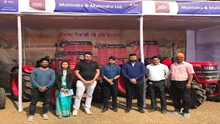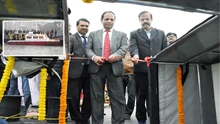
The first white revolution in the 1970s turned India from a milk deficit country to a milk sufficient one. India has been the largest milk-producing nation in the world since the past two decades. India tops the list in milk production due to a high cattle population despite low milk productivity.
One of the bottlenecks hindering growth for milk productivity is the lack of a technology-based system of production in rural areas. Eighty percent of Indian cattle are owned by farmers with a herd size of up to four animals with little automation and infrastructure. Moreover, poor genetics of the herd leads to low milk productivity.
Parallel to these supply-side challenges; India is slated to witness a boom in dairy demand. Demand for milk is growing at 6% annually in India but supply is growing at 4%. In order to meet the increasing demand for milk and ensure that India is self-dependent on milk production, there needs to be more productivity. Hence there is a need for a second white revolution. The gap between this supply and demand can be addressed by adopting innovative dairy farming practices.
Just as in the first milk revolution, this time around too the growth in productivity will be driven by small-scale farmers. Marginal farmers, however, are seeing lower returns from milk produced from their animals. In order to increase overall milk productivity and support rural dairy farmers, the milk yield per animal needs to increase. This can only be achieved through policies suitable to agro-climatic conditions and the needs of local farmers. Major producers like the USA and European Union experienced booms in productivity through genomic breeding interventions. Rearing a large number of animals creates high pressure on our resources and environment and is not a sustainable model. The solution is increased milk productivity through scientifically advanced breeding.
A second white revolution in India is the need of the hour not just to increase milk supply but to usher economic growth in the rural sector, double farmer income, and ensure a more environmentally sustainable model for dairy production. A major part of this revolution will be driven by technology-based solutions.
The first challenge in raising productivity for doubling rural farmer income is to increase the coverage of Artificial Insemination (AI) Services from a low level of 30% to 75%. National Dairy Program, a world bank-assisted program has been a major initiative for genetic improvement through progeny selection and progeny testing. This will give a boost to the productivity of current non-descript cattle and double milk production in the next two to three years. AI technology is low hanging fruit and continuing this for the next few years will be able to double or even triple milk production in the country.
Other more expensive technologies such as IVF (In Vitro Fertilization) embryos from high merit germplasm can assure 100% genetic gains to assure farmers of future revenue and increase productivity in the next generation of cattle. Sexed embryos manufactured from sorted semen can ensure a female calf which has a higher monetary value for the farmer. The industrial-scale of production of such technologies will lead to further affordability of such technologies.
TBG (Tropical Bovine Genetics), a brand under TAG (Tropical Animal Genetics) was setup with the single purpose of ushering in the second milk revolution in India through the use of groundbreaking science and technology. Our goal is to double rural farmer income.
Our indigenously developed In Vitro Breeding Platform (IVBP) allows for the breeding of bovine animals with the desired traits and characteristics at a cellular level. This paves the way for innovative products such as sexed semen, high merit semen for use in advanced artificial insemination. The IVF embryo technology offers assured genetics. Currently, TBG is working on a radically new technology known as Pregnancy Free Lactation (PFL) technology that allows cows to lactate without the need for pregnancy.
About TAG
Tropical Animal Genetics Pvt. Ltd. (“TAG”) is a bovine-assisted reproductive technology company. We have partnered with Trans Ova Genetics, USA (a leading cattle reproductive biotechnology company from USA) and with NDDB Dairy Services (NDS) to promote better genetics in Indian Bovine industry. We are working towards increasing per capita productivity of milk in bovines and conserving threatened Indian breeds of cattle. Our cutting-edge research in the field of sperm sorting and embryo management will enable us to provide the best of technology to the livestock farming community. We are managing a fully equipped IVF lab with rated production capacity of 100K embryos per year. We are creating a network of cattle I.V.F. labs for industrial scale production of embryos in the country. We have research facilities in Bengaluru, Karnataka and animal farm in Karnal, Haryana.













Share your comments